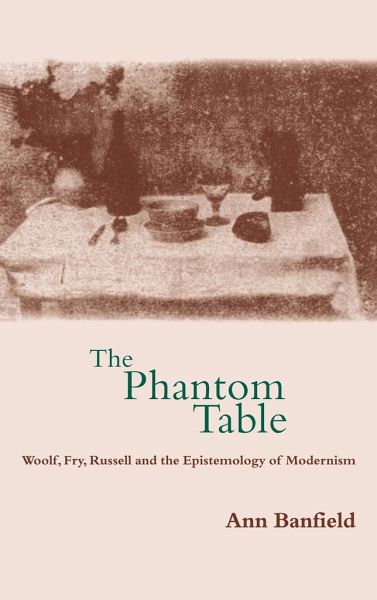
The Phantom Table
Woolf, Fry, Russell and the Epistemology of Modernism

PAYBACK Punkte
71 °P sammeln!
Virginia Woolf identified the influence on her work of 'the Cambridge Apostles', the philosophical society which counted G. E. Moore, Bertrand Russell and much of male Bloomsbury among its members, as one more 'capable of description' than 'the influence of my mother'. In this major study of Woolf's relationship to Bloomsbury and the aesthetic and philosophical developments of her time, Ann Banfield subjects that influence to a full treatment. The theory of knowledge Moore and Russell formulated, Banfield argues, profoundly affected Woolf's conception of reality, as it did Roger Fry's theory o...
Virginia Woolf identified the influence on her work of 'the Cambridge Apostles', the philosophical society which counted G. E. Moore, Bertrand Russell and much of male Bloomsbury among its members, as one more 'capable of description' than 'the influence of my mother'. In this major study of Woolf's relationship to Bloomsbury and the aesthetic and philosophical developments of her time, Ann Banfield subjects that influence to a full treatment. The theory of knowledge Moore and Russell formulated, Banfield argues, profoundly affected Woolf's conception of reality, as it did Roger Fry's theory of Post-Impressionism, one source for Woolf's transformations of philosophical principles into aesthetic ones. The Phantom Table is a magisterial account of Woolf's engagement with this remarkable trinity of thinkers: Moore, Russell, Fry. It revises the epistemology of modernism, reconceiving the relation between realism and formalism to account for Woolf's dual reality of sense impressions and logical forms.




